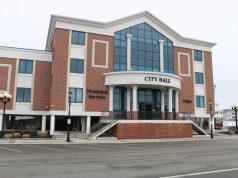
By Donald Wittkowski
Sea Isle City wants no part of New Jersey’s marijuana business – assuming that state lawmakers are able to secure enough votes to legalize recreational pot smoking.
City Council approved an ordinance Tuesday that prohibits the sale, cultivation, distribution, manufacturing and testing of both medical and recreational marijuana in Sea Isle. The ban would also include marijuana paraphernalia.
The measure includes language that bans “any business or enterprise of any nature” from selling, manufacturing or distributing medical or recreational marijuana.
Sea Isle officials are taking preemptive action to keep cannabis shops out of the beach town if Gov. Phil Murphy and the state Legislature are able to reach a deal to make pot legal in New Jersey.
Municipalities have the option of banning the sale and distribution of marijuana, but they would not share in any revenue from a cannabis tax if they do. Sea Isle now joins dozens of other New Jersey towns and cities that have already taken that step.
The governor, a proponent of recreational pot, suffered a setback Monday when the Senate called off a vote on legislation to legalize marijuana because it did not have enough support for approval.
Under the bill, the state would have allowed the sale and personal use of up to an ounce of marijuana for people 21 and over. The drug would have been taxed at $42 an ounce. As an extra financial incentive, towns that host cannabis growers, processors, wholesalers or retailers would have been able to charge an additional tax of up to 3 percent, according to media reports.
Sea Isle officials made it clear they have no interest in the financial perks dangled by the state for having marijuana sales.
“I feel it’s a money grab by the state. That’s all it is,” Councilwoman Mary Tighe said in an interview.
Tighe noted she is particularly concerned about marijuana’s effects on children. She drew parallels between the proposed legalization of recreational pot and the health hazards of cigarette smoking.
“We’re in the same position now as we were way back when with cigarettes. I look at it and say, ‘Did we not learn anything about cigarettes?” said Tighe, whose serves as assistant director of nursing for the Cape May County Health Department in her full-time job.
Tighe also said she is worried about marijuana users driving under the influence. In the states where recreational pot smoking has been legalized, there has been a rise in the number of traffic fatalities, she pointed out.
Currently, there is no scientific test – much like a breathalyzer to detect drunken drivers – to determine if marijuana users are driving while under the influence, Tighe said.
Sea Isle’s police officers would have to undergo special training to learn techniques on how to detect marijuana users who are driving while impaired. The cost of the extra training would likely be borne by the city’s taxpayers, so that is another reason why Tighe does not support the legalization of recreational marijuana, she said.
However, Sea Isle’s ordinance carves out an exception that allows medical marijuana to be sold by licensed pharmacies such as CVS and prescribed by doctors, City Solicitor Paul Baldini said.
“This ordinance is not intended to prohibit or otherwise restrict the dispensing of any pharmaceutical medication or other legal substance by a pharmacy or drug store under the supervision of a licensed pharmacist,” it says.

In other business Tuesday, Council approved the 2019 municipal budget. The $24.6 million spending plan cuts the local tax rate by a half-cent and reflects the city’s exceptionally strong financial structure, officials said.
Paula Doll, the city’s chief financial officer, called the budget “a good, fiscally prudent plan.”
Tighe asked Doll how long has it been since the city actually reduced the local tax rate.
“It’s been a while,” Doll responded.
Citing the city’s solid finances, Mayor Leonard Desiderio is already promising not to raise local taxes in 2020.
Under the 2019 budget, the owner of an average home assessed at $670,445 will pay $2,547 in local taxes this year. The figure does not include county and school taxes. The half-cent cut in local taxes will save the average homeowner about $35 for the year, Doll said.
The city will keep water and sewer rates the same in 2019, reflecting the sixth straight year there has not been an increase in those charges. The average homeowner pays $1,220 annually for sewer and water service.
The 2019 budget is down slightly from the $24.7 million spending plan last year. A $500,000 reduction in healthcare premiums for retired municipal workers who are part of the city’s medical plan helped to cut the budget expenses for 2019, Doll said.







